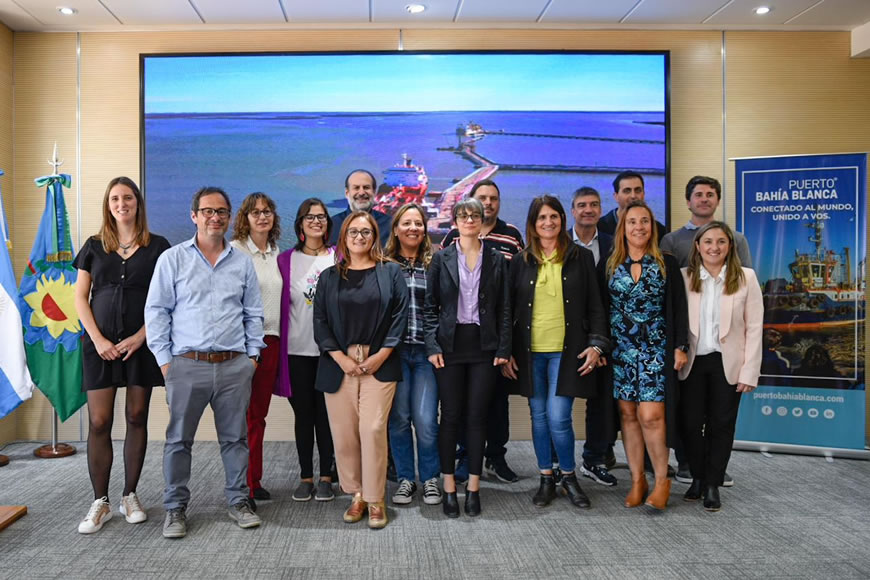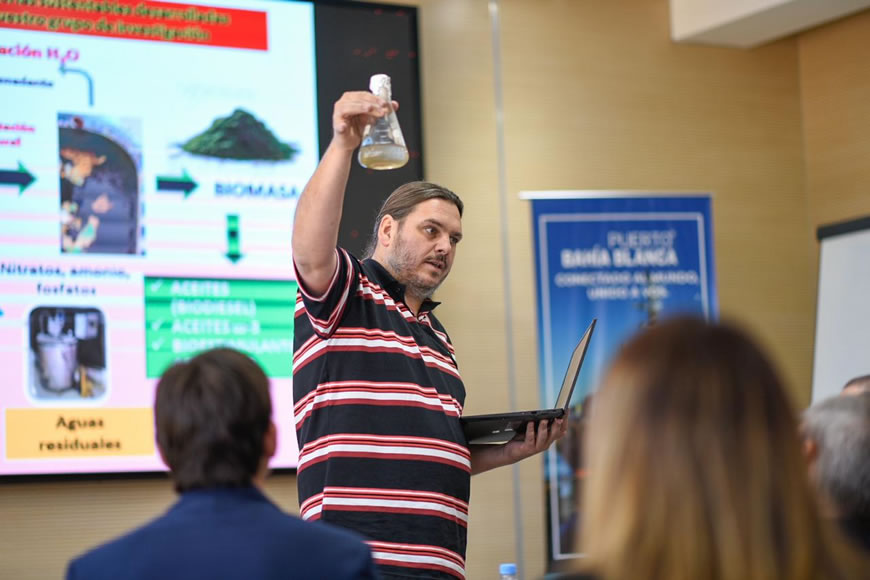Challenge 2024
Smartport Lab Net-Zero Challenge: Winners Selected to Reduce the Ports Carbon Footprint
The winning projects of the "Smartport Lab Net-Zero Challenge," organized by the Port of Bahía Blanca, have been selected.

The winners were "Nanosorb," "Lilo Track," "Identification of Natural Decarbonization Pathways through Satellite Images," and "Microalgae Biorefinery for Carbon Hydrogen Bioremediation and Wastewater Treatment." Additionally, in the intrapreneurship category, which allowed consortium employees to submit projects, the winning idea was an interactive augmented reality video game to raise awareness about the care of our estuary.
All projects were analyzed by an evaluation committee composed of professionals from CGPBB and invited experts, who selected the five winners. Nanosorb proposes the creation of a purification filter capable of eliminating various water contaminants through the combination of nanotechnology and organic waste. Similarly, the "Lilo Track" project outlines a comprehensive cargo monitoring system that includes central hardware and sensors to receive real-time information on container flow.
.jpg)
Federico Susbielles, president of the Port of Bahía Blanca Management Consortium, highlighted: "With the selection process for carbon emission reduction completed, it is gratifying to see our scientific institutes and young entrepreneurs participating, affirming that the Port is committed to innovation, technology, and production linked to sustainability and environmental responsibility."
A total of 20 projects offering solutions to reduce the carbon footprint in the port sector were received. These projects came from the provinces of Buenos Aires, Río Negro, Santa Fe, and the Autonomous City of Buenos Aires. The submitted projects covered a wide range of topics, including renewable energy generation, circular economy, environmental variable measurement, CO2 emissions, and energy efficiency, among others. From the total, eight finalists were selected, with five winners ultimately chosen. They will receive $1,500,000 in funding, an acceleration process, mentorships, and the opportunity to implement a pilot test at the Port of Bahía Blanca.

Martin Virdis, head of Smart Port Lab, explained: "We are very happy to have completed the evaluation process. It was a long journey that started several months ago. The selection was not easy, as all projects were highly competitive. Criteria such as the level of innovation, environmental impact, and the added value to the Port of Bahía Blanca Management Consortium were considered."
In last year's call, two projects were selected and are currently being supported in the financing and pilot implementation process. One of them is a hydrocarbon detection system for water using a sensor network, designed by the Argentine Institute of Oceanography. The other is an unmanned hydrographic vehicle presented by the company Redimec SRL, which will allow various surveys to be conducted in the local estuary without the need for a crew and with minimal environmental impact, as it is powered by an electric engine.
